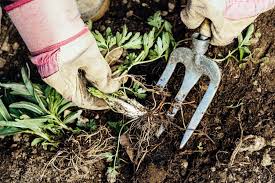
How to learn Spanish as an Adult (All you need to know): Learning Spanish as an adult may be a fulfilling experience that opens up new avenues for cross-cultural interaction and successful communication.
Read Also: How to learn a New Language and be consistent Learning it
Think about using these 15 useful ideas into your daily study regimen to help you succeed in this language adventure. These approaches provide a well-rounded and enjoyable route to Spanish fluency by catering to different learning types through immersive experiences, digital resources, and social interactions. Now, let’s explore the essential techniques that will improve your language abilities while also fostering a fun and long-lasting learning environment.

15 Effective ways on how to learn Spanish as an adult
1. Immerse Yourself
Surround yourself with Spanish by watching movies, listening to music, or following Spanish news. This helps you get used to the sounds and rhythm of the language.
Read Also: 10 Great Tips On How To Improve Study Habits
2. Take a Class
Enroll in a local language class or find online courses. Structured lessons with a teacher can provide a solid foundation.
3. Language Apps
Utilize language learning apps like Duolingo, Babbel, or Rosetta Stone. These apps offer interactive lessons and exercises to enhance your vocabulary and grammar skills.
Read Also: How To Improve Your Cognitive Skills
4. Practice Regularly
Consistency is key. Dedicate a set amount of time each day to practice Spanish, whether it’s through speaking, writing, or reading.
5. Flashcards
Create flashcards for vocabulary and carry them with you. Review them during idle moments to reinforce your memory.
6. Language Exchange
Find a language exchange partner who speaks Spanish. This allows for real conversation, helping improve your speaking and listening skills.
Read Also: How To Learn Faster(Steps and Requirements)

7. Read in Spanish
Start with simple texts and gradually move to more complex materials. Reading exposes you to different sentence structures and expands your vocabulary.
8. Watch Spanish TV Shows and Movies
This helps you pick up colloquial expressions and improves your listening comprehension.
Read Also: 15 Morning Habits for a Productive Day (Start Today Right)
9. Travel to Spanish-Speaking Countries
If possible, immerse yourself in the culture by visiting a Spanish-speaking country. Conversing with locals accelerates your learning.
10. Join Language Meetups
Attend local or online meetups where people gather to practice Spanish. This provides a supportive community and opportunities for real conversations.
Read Also: How To Stop Procrastinating(Powerful Tips)
11. Use Language Learning Websites
Explore websites like FluentU or SpanishDict, which offer a variety of resources, including videos, quizzes, and grammar explanations.
12. Listen to Spanish Podcasts
Podcasts are a convenient way to enhance your listening skills. Choose topics that interest you to make learning enjoyable.

13. Write in Spanish
Keep a journal or start a blog in Spanish. Writing helps reinforce grammar rules and builds your confidence in expressing yourself.
14. Learn Through Music
Listen to Spanish songs, read the lyrics, and try to understand the meaning. Music is a fun way to learn vocabulary and pronunciation.
Read Also: How to Enhance your Creative Mindset
15. Set Realistic Goals
Break down your learning into achievable goals. Whether it’s mastering specific grammar points or learning a certain number of words each week, setting realistic objectives keeps you motivated.
Conclusion
Acquiring fluency in a language requires more than just learning grammar and vocabulary; it also requires accepting the culture and environment in which the language is spoken. The key to these 15 strategies’ success is how well they fit into a customized language-learning regimen, which will make the process fun, engaging, and long-lasting in addition to being instructive. ¡Buena suerte en tu recorrido educativo! (Best of luck on your learning. journey!)
FAQs & Answers
1. How much time does it take an adult to learn Spanish fluently?
Fluency often requires persistent daily practice spanning many months to a few years, however exact timing varies.
2. Does one have to visit a Spanish-speaking nation in order to acquire the language effectively?
Immersion in a Spanish-speaking environment can speed up learning considerably, while it’s not required. It offers exposure to different cultures and real-world language practice.
3. How crucial is regular practice when studying Spanish as an Adult?
Maintaining consistency is essential. Even for little periods of time, regular practice helps maintain language proficiency and reinforces what has been learned.
4. How does language exchange factor into the process of learning Spanish?
By practicing with native speakers, language exchange helps you get better at conversing and comprehending different cultures.




